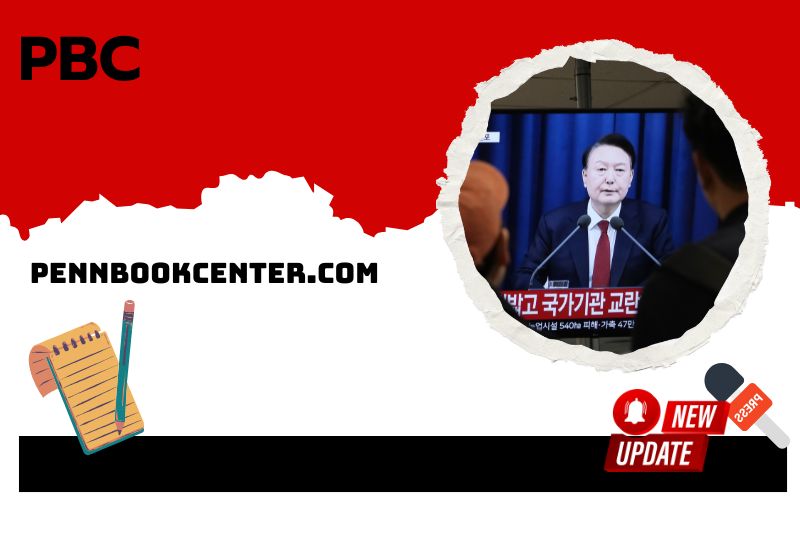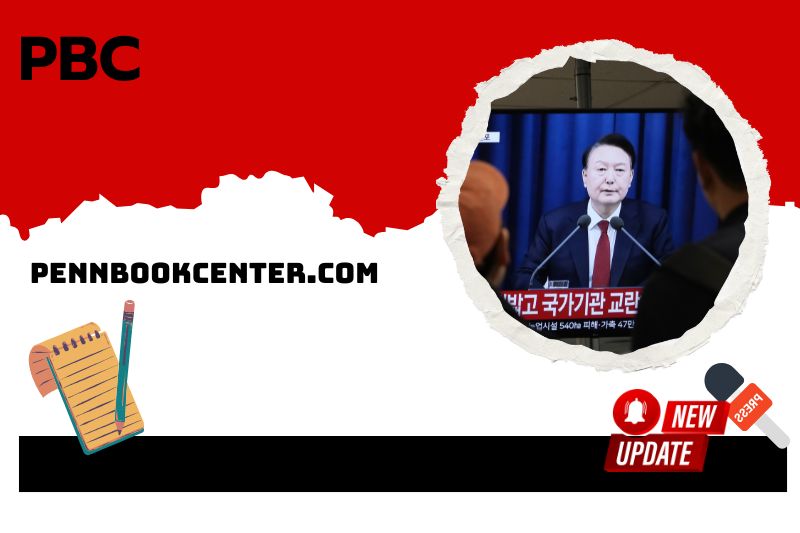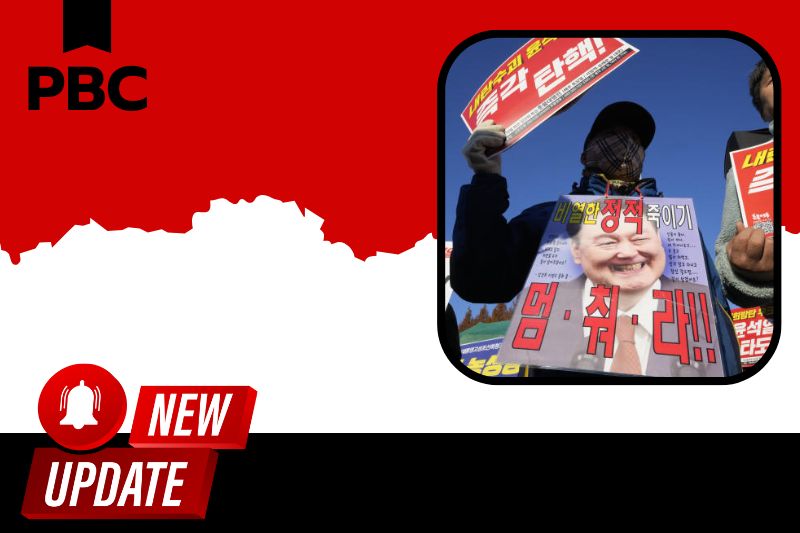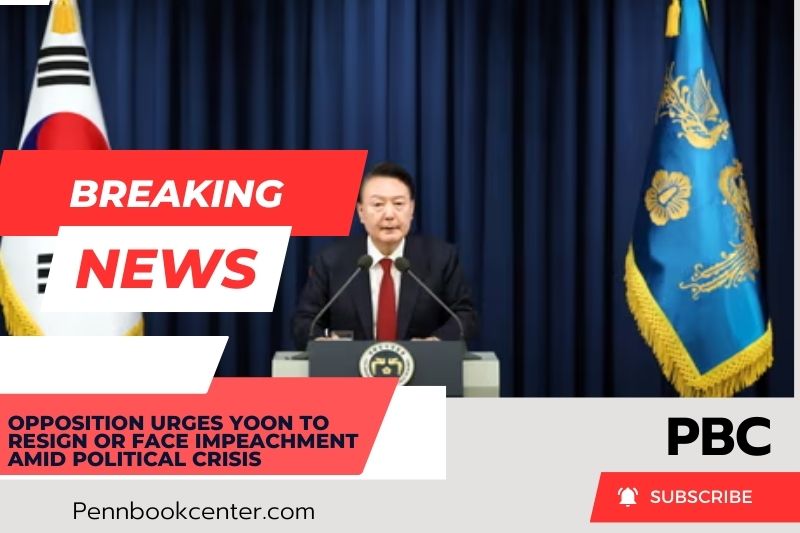The political tension in South Korea has reached a boiling point as opposition parties demand that President Yoon Suk Yeol either resign or face impeachment. The trigger? A controversial martial law declaration that has sparked widespread backlash.
In this article, we explore why Yoon’s decision to impose martial law has led to calls for his resignation, the potential ramifications of impeachment, and the political chaos that continues to unfold.
Why Is South Korea’s President Yoon Suk Yeol Facing Impeachment?

Yoon Suk Yeol has been under intense scrutiny following his unexpected martial law declaration.
On a seemingly normal evening, he imposed martial law in response to political resistance, specifically from the opposition-led Democratic Party. The opposition immediately reacted, calling for Yoon’s resignation or impeachment.
In South Korea, impeachment can only proceed with the backing of a two-thirds majority in the National Assembly.
Given the Democratic Party’s dominance with 192 seats out of 300, impeachment seems feasible, especially with about 10 lawmakers from the ruling People Power Party voting against Yoon’s martial law declaration.
This scenario raises important questions about the power struggle between the president and the parliament.
The root of the issue lies in Yoon’s martial law decree, which many argue was a direct violation of South Korea’s constitution.
Critics claim that his decision to deploy troops around the National Assembly and restrict access was an overreach, violating civil liberties.
The Democratic Party sees this as a grave act of rebellion, further fueling their demand for Yoon’s immediate resignation.
What Led to Yoon Suk Yeol’s Martial Law Declaration in South Korea?
Yoon Suk Yeol’s decision to impose martial law on the night of the declaration stemmed from mounting frustration. He had faced significant resistance in the National Assembly, where the Democratic Party had consistently blocked his legislative agenda. Yoon’s administration was struggling to make headway on key issues, including next year’s budget.
In a rare move, Yoon declared martial law under the guise of addressing a national emergency. He claimed the declaration was necessary to eliminate “anti-state” forces that were undermining his government. However, this measure was viewed by many as an attempt to bypass democratic checks and consolidate power.
The martial law itself was reminiscent of South Korea’s military-backed past, a period when such declarations were used to control the political landscape. The deployment of military personnel and helicopters around the National Assembly further reminded citizens of South Korea’s tumultuous political history.
How Did the National Assembly Respond to Yoon’s Martial Law?
The National Assembly wasted no time in rejecting Yoon’s martial law declaration. Just hours after it was imposed, lawmakers voted overwhelmingly, with a 190-0 vote, to lift it.
This swift rejection highlights the tension between the president and the parliament, and marks a significant moment in South Korea’s democratic process.
The Democratic Party played a key role in rallying opposition lawmakers against the decree, arguing that martial law was unconstitutional and unwarranted.
Their efforts were backed by a coalition of smaller opposition parties, all of which rejected the idea of a military-backed government taking control of public spaces.
It’s important to note that martial law is only permissible under specific constitutional conditions, such as during wartime or other national emergencies.
The South Korean constitution stipulates that martial law must be lifted if the National Assembly calls for it, a provision that was promptly acted upon by lawmakers.
To get a better sense of Yoon Suk Yeol’s financial background, you can check out our detailed article on his net worth.
What Are the Constitutional Implications of Martial Law in South Korea?

The South Korean constitution allows for martial law only in wartime or under a national emergency that necessitates restricting freedoms in order to maintain order.
Many legal experts argue that Yoon’s declaration did not meet these criteria, marking a significant constitutional violation.
For one, Yoon’s martial law was imposed without clear justification that would qualify as a national emergency.
Additionally, the National Assembly’s swift vote to lift the martial law also highlighted the constitutional mechanism designed to protect the balance of power in the country.
This situation has raised alarms about the erosion of democratic norms. South Korea, a country that has fought hard for democracy since the 1980s, has seen moments where military intervention threatened to undermine civil liberties.
However, this recent crisis has also shown the resilience of the National Assembly in safeguarding democratic principles.
What Are the Political Ramifications if Yoon Is Impeached?
If Yoon Suk Yeol were to face impeachment, South Korea would experience significant political upheaval. Impeachment in South Korea is a process where the president is temporarily removed from office, pending a ruling by the Constitutional Court.
If the court upholds the impeachment, Prime Minister Han Duck-soo would take over presidential duties on an interim basis.
The impeachment of a South Korean president is not a new concept. In 2017, former president Park Geun-hye was impeached and later imprisoned for corruption, marking a dramatic turning point in the country’s political history.
However, should Yoon face similar consequences, it could disrupt political stability and economic policies that have already been in flux due to this ongoing crisis.
How Has the U.S. Government Responded to South Korea’s Martial Law Crisis?

The U.S. government has expressed concern over the unfolding political crisis in South Korea. The White House released a statement noting that it had not been notified about Yoon’s martial law declaration in advance.
Despite this, U.S. officials emphasized the importance of upholding democratic processes and political stability.
As a long-time ally of South Korea, the United States is deeply invested in the political and economic stability of the country.
While U.S. military presence in South Korea remains unaffected, the crisis could complicate diplomatic relations and regional security dynamics. The U.S. remains concerned about the potential erosion of democratic norms in the region.
What Are the Main Reasons Behind the Political Crisis Between Yoon and the Opposition?
The political crisis in South Korea isn’t just about the martial law declaration. It’s also about the larger power struggle between Yoon’s government and the Democratic Party.
Several key issues have fueled this conflict, including the passage of next year’s budget bill, the attempt to impeach top prosecutors, and ideological differences that have escalated the situation.
Yoon’s administration has struggled to pass major pieces of legislation, facing fierce opposition from a parliament that is primarily controlled by the Democratic Party.
The opposition’s strategy has focused on blocking Yoon’s policies and holding him accountable for perceived abuses of power, such as the martial law declaration.
What Can South Korea Learn from Previous Political Crises and Impeachments?
South Korea has a rich history of political crises and impeachments. The 2017 impeachment of Park Geun-hye serves as a stark reminder of the power of public opinion and parliamentary checks on presidential authority.
This incident, and others throughout South Korea’s history, demonstrate the resilience of its democratic institutions and the vigilance of its citizens in protecting democracy.
Lessons learned from past crises show that while martial law and executive overreach can lead to instability, they can also strengthen democratic safeguards when citizens and lawmakers stand firm against such abuses.
Yoon’s current crisis will likely be a significant chapter in South Korea’s ongoing fight to maintain a healthy, functioning democracy.
Conclusion
As South Korea grapples with its latest political crisis, the future of President Yoon Suk Yeol remains uncertain. Will he be forced to resign, or will his government withstand the pressure? Share your thoughts, leave a comment, and keep up with the latest developments on Pennbookcenter.




